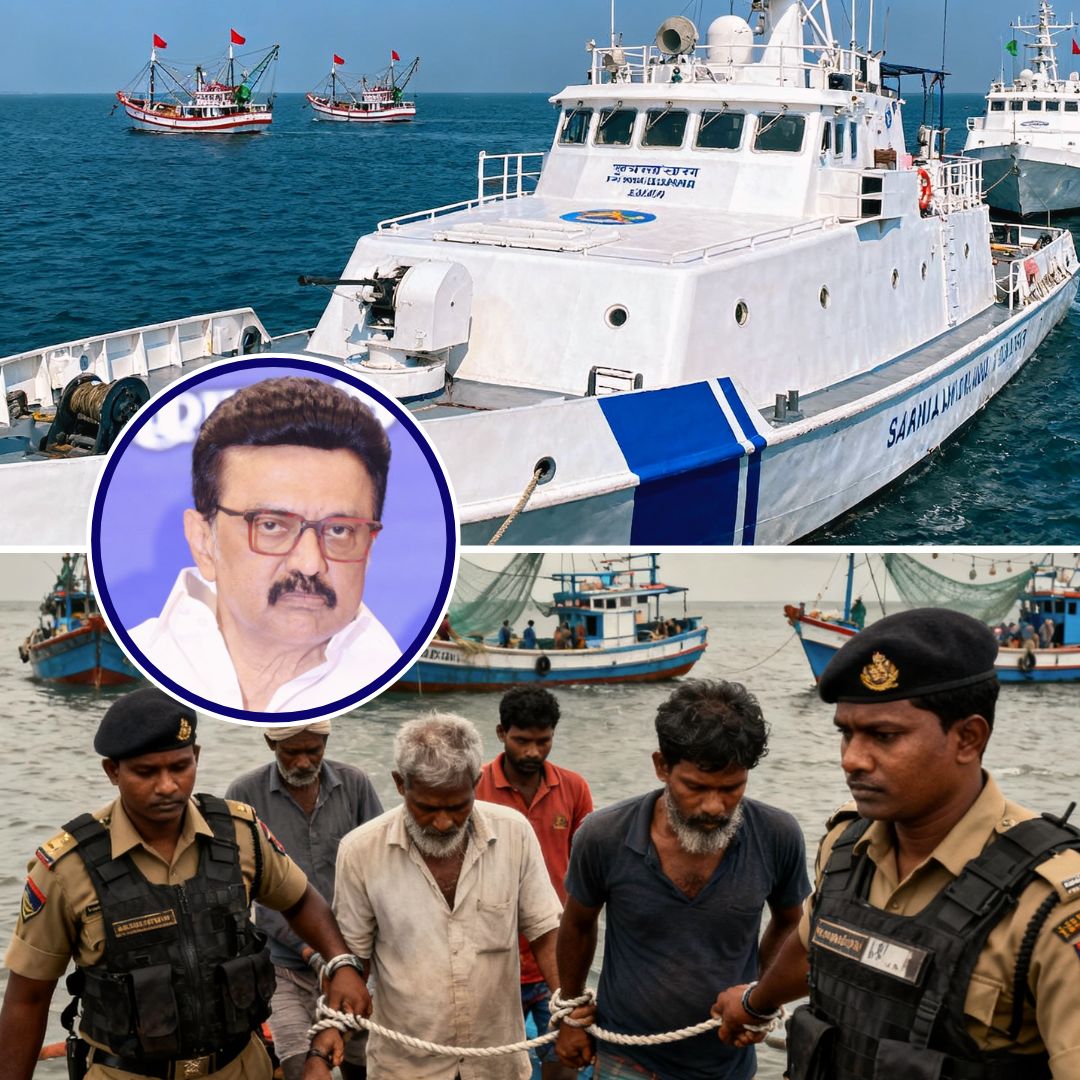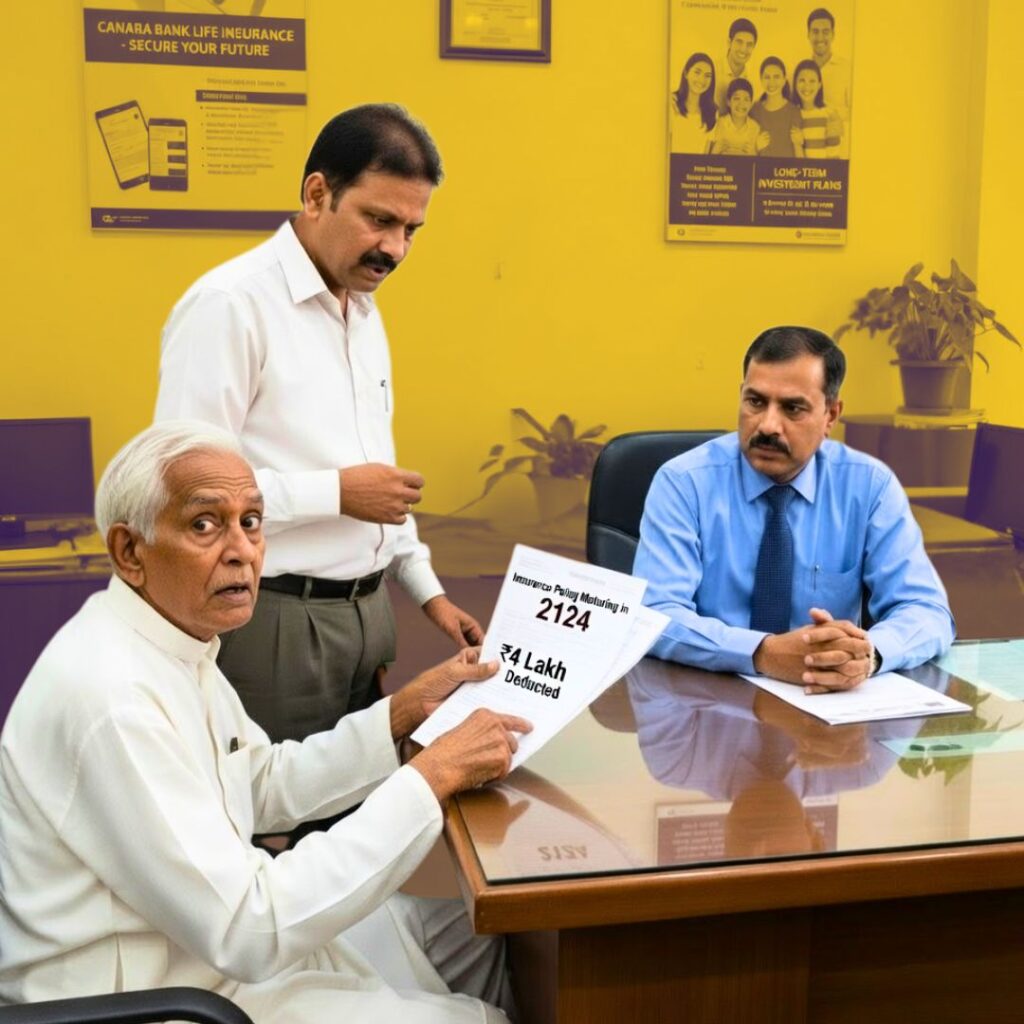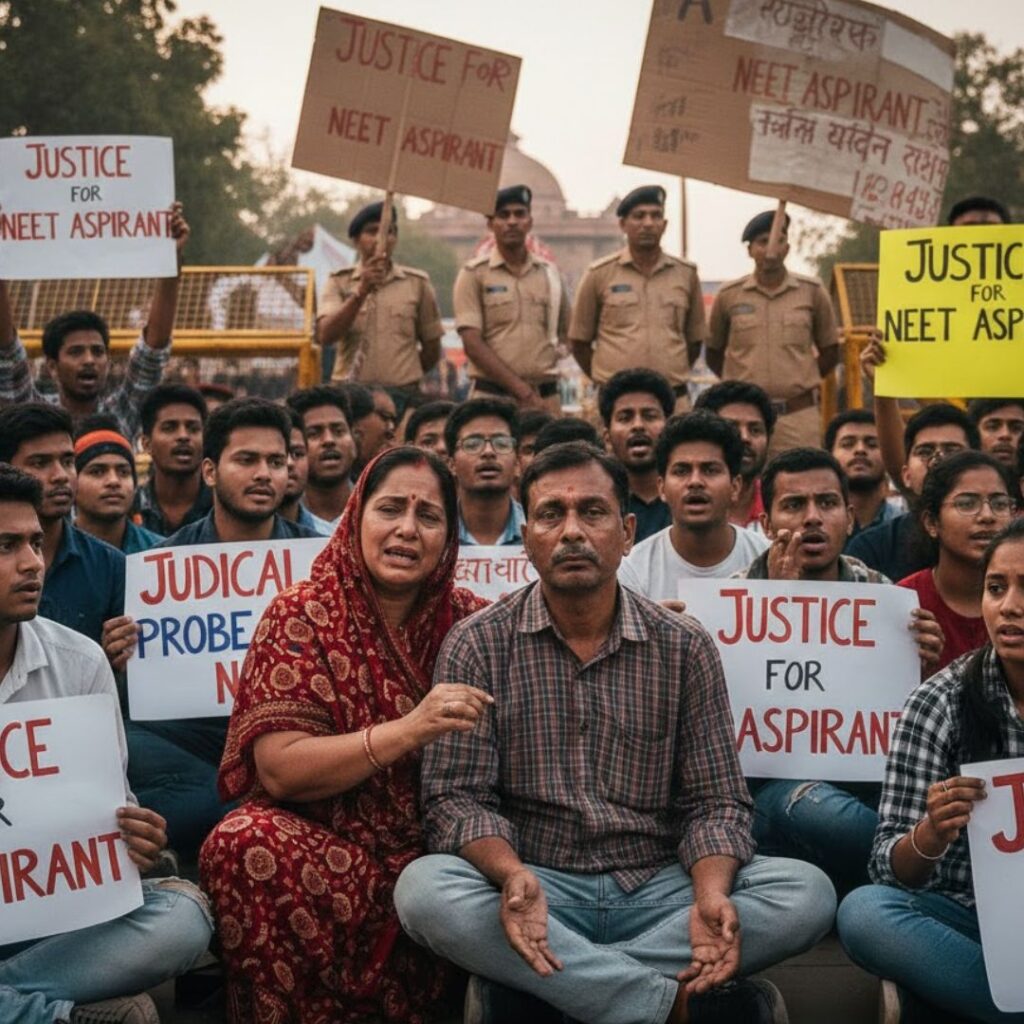On October 8, 2025, the Sri Lankan Navy arrested 47 Indian fishermen and seized five mechanised trawlers near Talaimannar in northern Sri Lanka, accusing them of illegal fishing within Sri Lankan waters across the International Maritime Boundary Line (IMBL).
Thirty fishermen hailed from Rameswaram, Tamil Nadu, and 17 from Karaikal, Puducherry. Tamil Nadu Chief Minister MK Stalin condemned the arrests and requested India’s External Affairs Minister S. Jaishankar for urgent diplomatic intervention. The arrests, which took place during coordinated naval patrols aimed at preventing illegal fishing, highlight ongoing maritime disputes and their impact on the coastal fishing communities on both sides.
Coordinated Patrols and Arrest Details
The arrests were executed amidst coordinated naval patrols between the Mannar and Delft sea areas, regions known for contentious maritime boundaries between India and Sri Lanka. The Sri Lankan Navy detained mechanised fishing boats and their crews for reportedly crossing the IMBL and fishing illegally in Sri Lankan waters. Commander Buddika Sampath, the Navy spokesperson, confirmed that the operation took place late on October 8 and into the early hours of October 9.
The arrested fishermen, with their boats and equipment, are to be handed over to Sri Lanka’s northern fisheries inspectorate for legal processing. This operation represents the largest single-day apprehension of Indian fishermen by Sri Lanka in 2025, adding to previous seizures that included 74 fishermen and 242 boats held by the Sri Lankan authorities this year. The incident has deeply affected fishing communities in Tamil Nadu and Puducherry, who depend heavily on these marine areas for their livelihood.
Historical Context and Maritime Disputes
The Palk Strait and surrounding waters have long been sites of friction and disputes between India and Sri Lanka. The primary issue revolves around the exact demarcation and recognition of maritime boundaries, with both countries asserting fishing rights in overlapping areas.
Sri Lanka’s insistence on protecting its territorial waters often results in confrontations with Indian fishermen, who sometimes venture beyond recognised limits in search of fish. Past episodes have included Sri Lankan Navy firing warning shots to prevent illegal fishing and numerous arrests that have inflamed diplomatic tensions. In September 2025, 12 Tamil Nadu fishermen were similarly detained near Jaffna.
These recurring incidents not only destabilise bilateral relations but also jeopardise the welfare of traditional fishing communities who suffer loss of income and legal troubles.
Political Reactions and Calls for Dialogue
Accprding to TOI, Tamil Nadu Chief Minister MK Stalin has vehemently opposed the arrests. He promptly wrote to India’s External Minister S. Jaishankar, urging urgent diplomatic action to secure the fishermen’s release and prevent future incidents. Stalin also called for the revival of the India-Sri Lanka Joint Working Group on Fisheries to foster dialogue and cooperation on sustainable fishing practices and maritime boundary management.
The Chief Minister’s appeal reflects growing pressure on India’s central government to intensify diplomatic efforts and protect the interests of coastal fishermen. Political and community leaders in Tamil Nadu and Puducherry have supported calls for peaceful negotiations, highlighting the need for bilateral mechanisms that address the complex issues underpinning these maritime conflicts.
The Logical Indian’s Perspective
The repeated arrests and maritime disputes underscore the urgent need for peaceful resolution through diplomacy, empathy, and cooperation. The Logical Indian advocates a collaborative approach that respects national boundaries while safeguarding the livelihoods of fishing communities on both sides. Sustainable and mutually beneficial agreements can ensure resource conservation and foster harmony in the region.
These disputes remind us of the importance of recognising shared cultural ties and economic interdependence. Long-term solutions require building trust and strengthening dialogue channels between India and Sri Lanka to prevent conflict recurrence.
The @srilanka_navy, during operations on 08 & 09 Oct, seized 05 Indian fishing boats and held 47 Indian fishermen for poaching in Sri Lankan waters. #StopPoaching
— Sri Lanka Navy (@srilanka_navy) October 9, 2025
Read more: https://t.co/NMLemrPzdb pic.twitter.com/esa3JoMzEY













